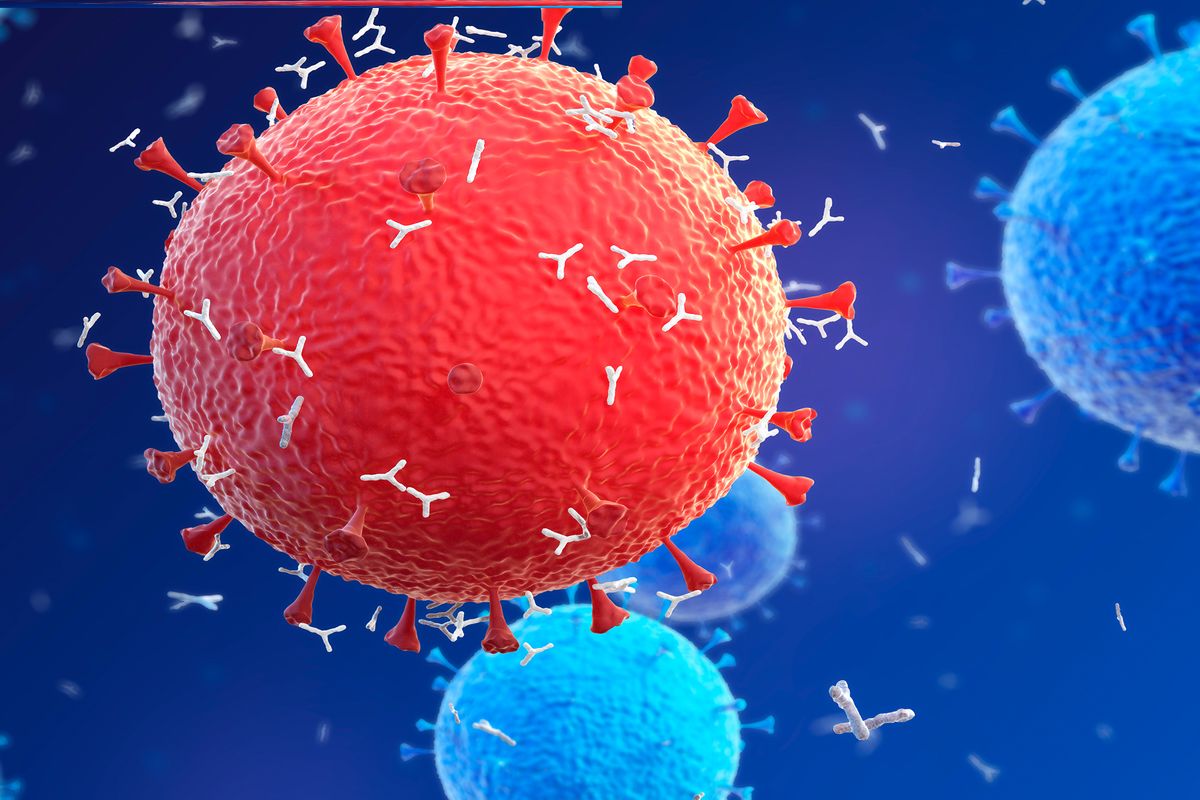
Antigens are fascinating molecules that play a crucial role in our immune system. But what exactly are they? Antigens are substances that trigger an immune response in the body. They can be proteins, polysaccharides, lipids, or nucleic acids. When these molecules enter the body, they are recognized as foreign, prompting the immune system to produce antibodies to fight them off. This process is essential for protecting us from infections and diseases. Understanding antigens can help us grasp how vaccines work, why allergies occur, and how autoimmune diseases develop. Ready to learn more? Here are 27 intriguing facts about antigens that will deepen your understanding of these vital molecules.
What Are Antigens?
Antigens are substances that trigger an immune response in the body. They can be proteins, polysaccharides, lipids, or nucleic acids. Understanding antigens is crucial for grasping how our immune system works.
- Antigens are often found on the surface of pathogens like bacteria and viruses.
- The immune system recognizes antigens as foreign and mounts a defense against them.
- Vaccines work by introducing antigens into the body to stimulate immunity without causing disease.
Types of Antigens
Antigens come in various forms, each playing a unique role in the immune response. Knowing the different types helps in understanding how vaccines and immune therapies work.
- Exogenous antigens enter the body from the outside, like through inhalation or ingestion.
- Endogenous antigens originate within the body, often from infected cells.
- Autoantigens are normal proteins or complexes that the immune system mistakenly targets in autoimmune diseases.
How Antigens Interact with Antibodies
Antibodies are proteins produced by the immune system to neutralize antigens. This interaction is vital for defending against infections.
- Each antibody is specific to a particular antigen.
- The binding site on an antibody is called the paratope, while the part of the antigen it binds to is the epitope.
- Antibody-antigen binding can neutralize toxins, mark pathogens for destruction, or prevent pathogens from entering cells.
Antigens in Blood Typing
Blood typing relies on antigens present on the surface of red blood cells. This is crucial for safe blood transfusions.
- The ABO blood group system is based on the presence or absence of A and B antigens.
- The Rh factor is another antigen that can be either positive or negative.
- Mismatched blood transfusions can cause severe immune reactions due to incompatible antigens.
Role of Antigens in Vaccination
Vaccines use antigens to train the immune system to recognize and fight specific pathogens. This has been a game-changer in public health.
- Inactivated vaccines use killed pathogens to introduce antigens without causing illness.
- Live attenuated vaccines use weakened forms of the pathogen.
- Subunit vaccines use only parts of the pathogen, like its protein or polysaccharide antigens.
Antigens and Allergies
Allergies occur when the immune system overreacts to harmless substances, mistaking them for harmful antigens.
- Common allergens include pollen, pet dander, and certain foods.
- Allergic reactions can range from mild (sneezing, itching) to severe (anaphylaxis).
- Allergy tests often involve exposing the skin to small amounts of potential allergens to see if an immune response occurs.
Antigens in Cancer Treatment
Cancer cells can express unique antigens that the immune system can target. This has led to innovative treatments.
- Tumor antigens are proteins or other molecules produced by cancer cells.
- Immunotherapies can boost the immune system's ability to recognize and attack tumor antigens.
- CAR-T cell therapy involves modifying a patient's T cells to better target cancer antigens.
Antigens in Autoimmune Diseases
In autoimmune diseases, the immune system mistakenly targets the body's own antigens, leading to chronic inflammation and tissue damage.
- Rheumatoid arthritis involves the immune system attacking joint tissues.
- Type 1 diabetes results from the immune system targeting insulin-producing cells in the pancreas.
- Multiple sclerosis occurs when the immune system attacks the protective covering of nerve fibers.
Antigens in Diagnostic Tests
Antigens play a crucial role in various diagnostic tests, helping to identify infections and other conditions.
- Rapid antigen tests can quickly detect the presence of pathogens like the flu or COVID-19.
- ELISA (enzyme-linked immunosorbent assay) tests use antigens to detect antibodies in the blood.
- Western blot tests can identify specific proteins, including antigens, in a sample.
Final Thoughts on Antigens
Antigens play a crucial role in our immune system. They help our bodies recognize and fight off harmful invaders like bacteria and viruses. Understanding antigens can lead to better vaccines and treatments for diseases. From their discovery to their use in modern medicine, antigens have revolutionized how we approach health and disease prevention.
Knowing about antigens isn't just for scientists. It's useful for anyone interested in how our bodies work. Whether you're a student, a healthcare professional, or just curious, understanding antigens can give you a deeper appreciation for the complexities of the human body.
So next time you hear about vaccines or immune responses, you'll know a bit more about the tiny but mighty antigens at work. Keep learning, stay curious, and appreciate the wonders of science that keep us healthy.
Was this page helpful?
Our commitment to delivering trustworthy and engaging content is at the heart of what we do. Each fact on our site is contributed by real users like you, bringing a wealth of diverse insights and information. To ensure the highest standards of accuracy and reliability, our dedicated editors meticulously review each submission. This process guarantees that the facts we share are not only fascinating but also credible. Trust in our commitment to quality and authenticity as you explore and learn with us.
